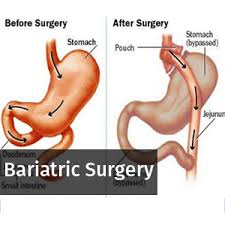- Home
- Editorial
- News
- Practice Guidelines
- Anesthesiology Guidelines
- Cancer Guidelines
- Cardiac Sciences Guidelines
- Critical Care Guidelines
- Dentistry Guidelines
- Dermatology Guidelines
- Diabetes and Endo Guidelines
- Diagnostics Guidelines
- ENT Guidelines
- Featured Practice Guidelines
- Gastroenterology Guidelines
- Geriatrics Guidelines
- Medicine Guidelines
- Nephrology Guidelines
- Neurosciences Guidelines
- Obs and Gynae Guidelines
- Ophthalmology Guidelines
- Orthopaedics Guidelines
- Paediatrics Guidelines
- Psychiatry Guidelines
- Pulmonology Guidelines
- Radiology Guidelines
- Surgery Guidelines
- Urology Guidelines
EASO Guidelines for Post Bariatric surgery Care

Bariatric surgery is today the most effective long-term therapy for the management of patients with severe obesity, and its use is recommended by all the relevant guidelines for the management of obesity in adults.The number of bariatric surgery operations performed has increased phenomenally high figure of about 200,000 procedures in 2017. EASO has shared the new OMTF guidelines for Post-Bariatric Surgery Medical Management which have been published in Obesity Facts.The aim of new guidelines is to equip all health care professionals with tools needed to provide appropriate first-level medical care to patients after Bariatric surgery.It has recommended that follow-up care after bariatric surgery, particularly in the early period after surgery, should be transferred to primary care physicians.
Major Recommendations For Postbariatric Surgery Care-
- Follow-up care after bariatric surgery, particularly in the early period after surgery, should be transferred to primary care physicians.
- The introduction of solid foods should be gradual. Initiating with a low-sugar, clear-liquid meal within 24 hours after surgery gradually and progressively changing the food consistency from clear liquids to soft or creamy foods and then to solids over a period of 2-4 weeks.
- Patients should be subjected to regular counseling by a registered dietitian about long-term dietary modifications to reduce the risk of weight regain.
- Patients with gastric restriction should be asked to eat 3 small meals during the day and chew small bites of food thoroughly before swallowing.They should be advised not to drink any beverages with food.
- Patients should be asked to adhere to Dietary protein intake guidelines which suggest a minimal protein intake of 60 g/day and up to 1.5 g/kg ideal body weight per day through food or protein supplements .
- All cases of persistent or frequent vomiting must be investigated for a physical cause and a surgical opinion sought.
- The patient should be advised to eat small but frequent meals, avoid ingestion of liquids within 30 minutes of a solid-food meal, avoid simple sugars, increase intake of fiber and complex carbohydrates, and increase protein intake to avoid dumping .
- Prophylactic Vitamins especially Thiamine and iron and folic acid supplementation is recommended after gastric bypass, biliopancreatic diversion, duodenal switch, and sleeve gastrectomy.
- Calcium and vitamin D routine supplementation is strongly recommended after gastric bypass and malabsorptive procedures.
- Routine fat-soluble vitamin supplementation is recommended in all patients having undergone biliopancreatic diversion or biliopancreatic diversion with duodenal switch.
- Pregnancy is not recommended during 12-18 months following surgery as there is a higher incidence of stillbirths in the first year after surgery and increased risk of obstetric complications.
For further Reference log on to :
- Busettoa L, Dickerb D, Azranc C et al. Practical Recommendations of the Obesity Management Task Force of the European Association for the Study of Obesity for the Post-Bariatric Surgery Medical Management. Obes Facts. Published online: December 6, 2017DOI: 10.1159/000481825

Disclaimer: This site is primarily intended for healthcare professionals. Any content/information on this website does not replace the advice of medical and/or health professionals and should not be construed as medical/diagnostic advice/endorsement or prescription. Use of this site is subject to our terms of use, privacy policy, advertisement policy. © 2020 Minerva Medical Treatment Pvt Ltd